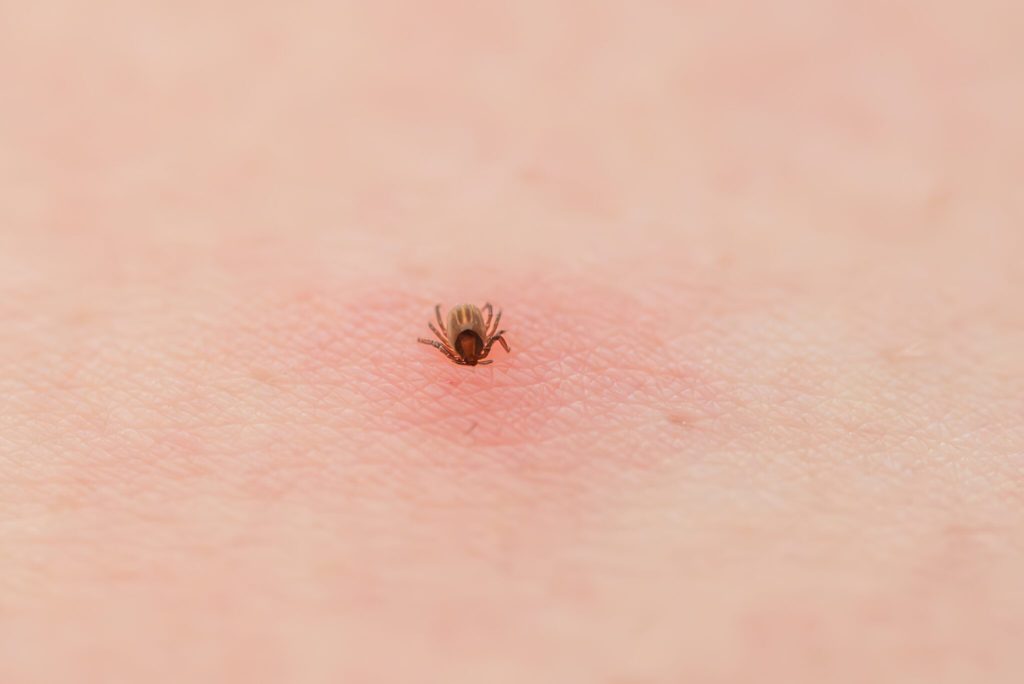What to Do If You Find a Tick on Yourself or Your Pet. Ticks, common in wooded or grassy areas, feed on blood and can transmit serious diseases like Lyme disease, Rocky Mountain spotted fever, and babesiosis. To reduce risk, avoid tick-heavy areas, check yourself and pets regularly, and take precautions outdoors.
If a tick bites you:
Remove it promptly using fine-tipped tweezers, grabbing close to the skin and pulling straight out.
- Don’t twist or squeeze the tick.
- Dispose of it by sealing it in a bag or flushing it down the toilet. You may want to save it in a container for identification.

For pets: Check areas like ears, armpits, and paws frequently. Keeping pets tick-free helps protect your whole household.
If you’ve been bitten: Watch for symptoms like flu-like aches, rashes (especially bullseye-shaped), or fatigue. Seek medical attention promptly—early treatment can prevent serious illness.